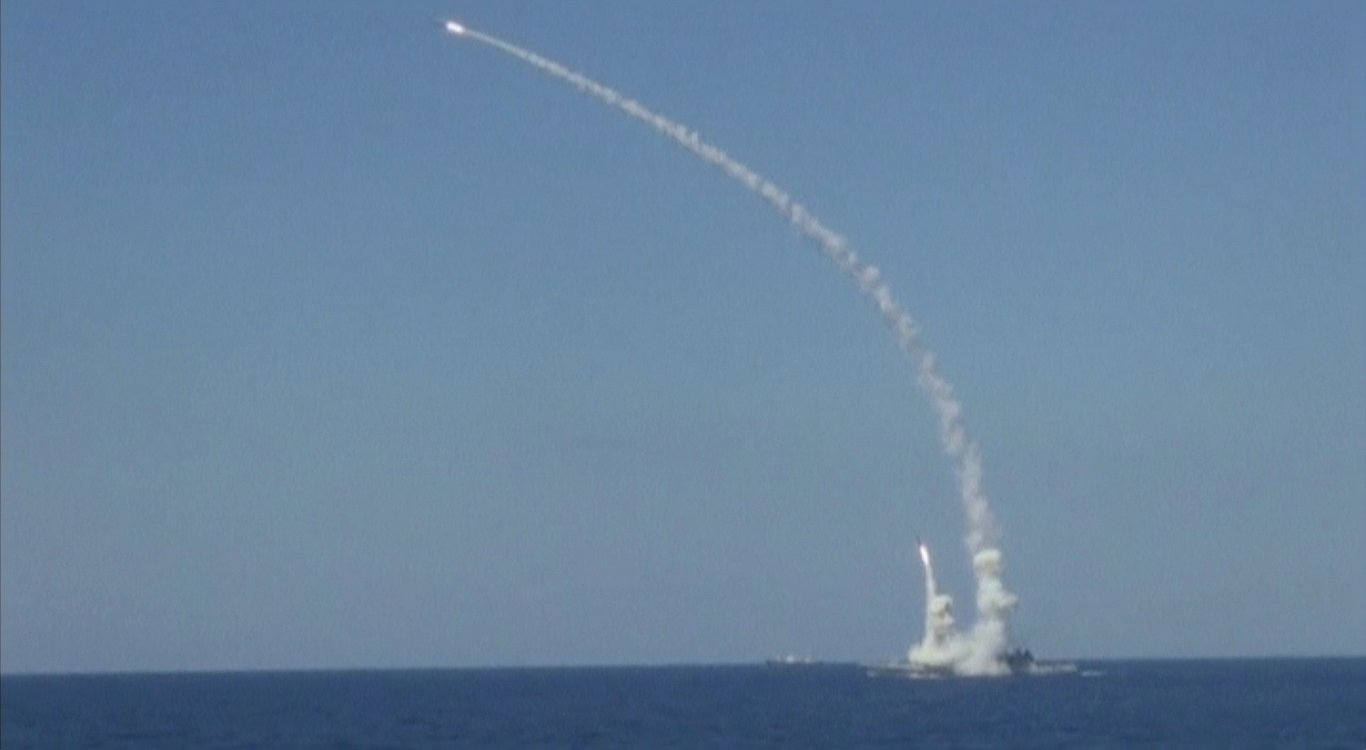"Russia's Chief Air Traffic Control Center has informed the Latvian Civil Aviation Agency that the Russian Navy plans to conduct missile launches from 06:00 to 18:00 April 4 to 6 in the airspace above Latvia's exclusive economic zone in the Baltic Sea," the ministry said.
The Russian side has called on the Latvian Civil Aviation Agency to close airspace to a height of 18 kilometers in the area for rocket firing, approximately 40 kilometers from the coastline of Latvia - a move that might effectively prevent all civilian aviation operating in the area.
The Latvian Ministry of Defense has summoned the Russian Federation's military attache and expressed dissatisfaction with the situation, "noting that, despite the fact that international agreements do not prevent Russia from conducting such training in this territory, its actions are challenging and more likely to be considered as a demonstration of power."
Such training may endanger civil ships and aircraft over the Baltic Sea, the ministry said.
The Ministry of Defense has requested the Russian Military Attaché to provide detailed information on planned activities in the exclusive economic zone of Latvia, as well as on how security during the missile firing will be ensured.
Turning a large part of the Baltic Sea into a no-go zone for up to 36 hours will not only damage economic activities but also increase the risk of accidents, the ministry added.
"The National Armed Forces will follow the course of this test and will continue to intensify observation of our country's borders," the ministry said.
Meanwhile the Russian Ministry of Defense was already reporting March 29 about other just-completed firing exercises taking place on the Baltic Sea.
Other recent exercises have involved the use of S-400 missiles to shoot down simulated aircraft attacks.
According to the UK's Daily Star, the test firing will take place extremely close to Sweden and will involve the Russian naval cruiser Marshal Ustinov, though the newspaper seems to confuse the Barents Sea and the Baltic Sea.
Russian missiles will be tested in international waters unusually close to Sweden next week. Air traffic near Öland and Bornholm will have to be redirected. "I've never seen anything like it" says flight traffic chief Jörgen Andersson to @MatsEriksson7
— Radio Sweden (@radiosweden) March 29, 2018
Responding to the news on social media March 30, Latvian President Raimonds Vejonis said the Russian move would likely "worsen the security situation in the region".
Krievijas Jūras spēku vairāku dienu plānotā raķešu šaušanas pārbaude virs Latvijas ekskluzīvās ekonom.zonas Baltijas jūrā nemazina saspīlējumu reģionā, bet drīzāk pasliktina drošības situāciju reģionā. @AizsardzibasMin un @Latvijas_armija seko līdz un uzrauga situāciju, @Vejonis
— Valsts prezidents (@Rigas_pils) March 30, 2018
A subsequent tweet saw the President saying such actions justified moves by NATO and Latvia in recent years to strengthen defensive capabilities.




























